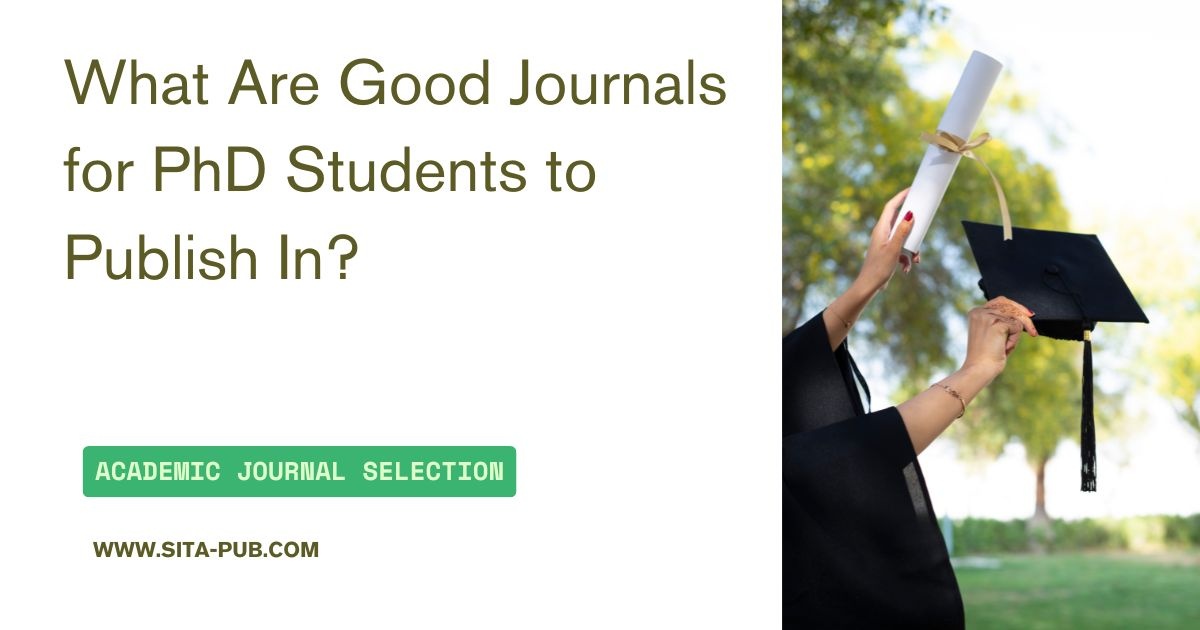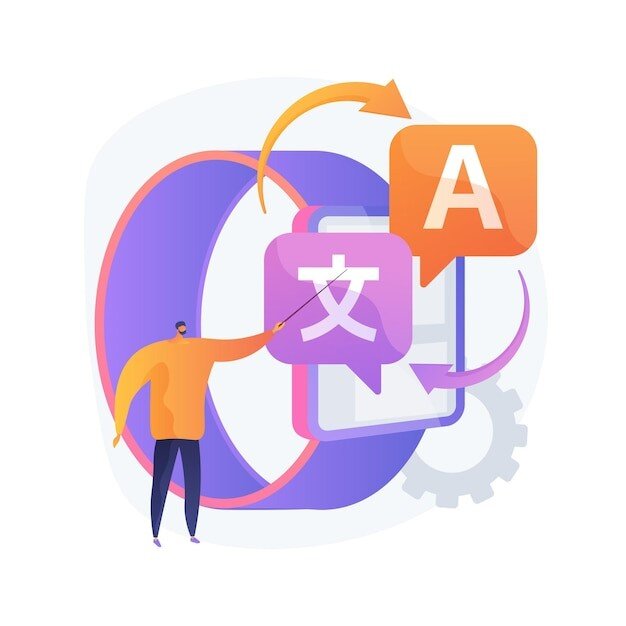What Are Good Journals for PhD Students to Publish In?


Publishing research is an important part of the journey for many master’s, PhD, or graduate students. Whether you want to fulfill graduation requirements, build a strong CV, or pursue a career in academia, getting your research published plays a key role. For PhD students in particular, publishing your research is a way to share your discoveries with the global academic community and establish yourself as a credible researcher.
While your PhD thesis contains a comprehensive description of your work, publishing means writing and submitting your research in the form of journal articles. This process requires summarizing your findings clearly and following specific guidelines for academic journals within your field. If you’re new to publishing, this may seem overwhelming, but with the right approach, you can successfully navigate it.

Publishing your research during your PhD is important for several reasons. Many programs require students to have published work or accepted articles as part of their graduation criteria. Beyond this requirement, publishing helps build your reputation as a researcher and improves your chances of securing jobs, funding, or academic positions after graduation. Writing and submitting papers also develop your skills in communication, critical thinking, and handling feedback. Publishing allows you to connect with other researchers, opening doors for collaboration and conference invitations. It also lets you share your findings with the wider community, which can influence future research and have real-world impact. Finally, having published work can strengthen your thesis and make your final defense easier, as it provides clear evidence of your research abilities and helps improve your arguments through reviewer feedback. Overall, publishing is a key step not only for meeting graduation requirements but also for growing your academic profile and career.

In many parts of the world, universities and governments have made it mandatory for PhD students to publish one or more research articles before they can graduate. This requirement aims to raise the quality and visibility of doctoral research and better prepare students for academic careers.
China:
Many Chinese universities require PhD candidates to publish at least one or two papers in recognized journals before they can defend their thesis.
Peking University
Tsinghua University
Fudan University
South Korea:
It is common for Korean universities to require publication in indexed journals to fulfill doctoral degree requirements.
Seoul National University
Korea University
KAIST (Korea Advanced Institute of Science and Technology)
Russia:
Several Russian institutions require doctoral students to publish scientific papers before graduation.
Moscow State University
Saint Petersburg State University
Novosibirsk State University
Brazil:
Brazilian universities often expect PhD students to publish during their studies, sometimes specifying indexed journals.
University of São Paulo
Federal University of Rio de Janeiro
State University of Campinas
Saudi Arabia:
Several universities require PhD candidates to publish in indexed journals as part of graduation criteria.
King Saud University
King Abdulaziz University
King Fahd University of Petroleum and Minerals
Egypt:
Egyptian universities often require at least one publication in peer-reviewed journals before awarding PhD degrees.
Cairo University
Ain Shams University
Alexandria University
United Arab Emirates (UAE):
Some institutions require PhD students to publish before graduation to ensure research quality and international visibility.
United Arab Emirates University
Khalifa University
American University of Sharjah
Jordan:
Many Jordanian universities have implemented policies requiring PhD students to publish peer-reviewed articles prior to graduation.
University of Jordan
Jordan University of Science and Technology
Yarmouk University
This list shows how widespread and institutionalized the publication requirement is globally, including in Arabic-speaking countries. If you plan to study or are currently studying in any of these universities, be sure to review their specific publication policies to understand their expectations and deadlines.
The initial and often hardest step is writing a research paper from scratch. For many students, this can feel daunting, especially if it’s your first time preparing a manuscript for publication. Research papers have strict formatting rules, require clear writing, and often need to fit a journal’s specific style.
Most PhD students find it easier to convert parts of their thesis into articles rather than starting from zero. Here’s why:
Time Saver: The main data collection, experiments, or analyses have already been done in your thesis. Extracting key sections reduces the workload.
Focus on Important Results: A thesis is usually long and covers many details. An article lets you focus on one specific question or result, making it easier for readers to understand.
Better Structure for Journals: Theses are comprehensive but not always structured like journal articles. Extracting articles forces you to organize your ideas clearly.
Showcase Your Hard Work: Publishing your thesis work in articles ensures your effort reaches a wider audience beyond just your university.
After preparing your manuscript, selecting the right journal to submit it to is one of the most important decisions you will make. The journal you pick can greatly influence the chances of acceptance and how your work is perceived.
Scope and Audience:
Make sure the journal publishes work in your specific field. Check their scope carefully—journals often list the types of studies and topics they accept.
Impact and Metrics:
Many journals have an impact factor or other metrics that indicate how often their articles are cited. While high-impact journals are prestigious, they often have very high rejection rates, especially for early-career researchers.
Peer Review Process:
Ensure the journal uses a rigorous peer-review process, which improves the quality of published research.
Rejection Rates:
Prestigious journals like Nature, Science, or Cell may reject 80-90% of submissions. As a PhD student, it’s wise to target journals with moderate acceptance rates.
Open Access vs. Subscription:
Open access journals make your article freely available to everyone, increasing visibility. However, they sometimes charge publication fees. Subscription journals are free to publish in but require readers to pay to access.
Publication Speed:
Some journals take months or even years from submission to publication. Others offer faster review and publication times, which can be crucial if you need the article for graduation or job applications.
Indexing and Databases:
Make sure the journal is indexed in reputable databases like Scopus, PubMed, or Web of Science. Being indexed means your work will be visible and accessible to the academic community.

To help you choose wisely, here’s a practical checklist:
Search Using Reputable Databases:
Use Scopus, PubMed, Web of Science, or Google Scholar to find journals in your area.
Create a Long List:
Gather all journals that publish topics related to your research.
Check Scope and Relevance:
Remove journals that don’t clearly publish work in your field.
Review Journal Metrics:
Look at impact factor, SCImago Journal Rank (SJR), or CiteScore, but avoid obsessing over high impact journals early on.
Consider Quartile Rankings:
Journals are often divided into quartiles (Q1 to Q4) based on impact. Q3 and Q4 journals tend to have lower rejection rates and are good options for early researchers.
Check for Peer Review and Indexing:
Ensure the journal uses peer review and is listed in trusted databases.
Review Author Guidelines:
Read the journal’s submission guidelines to understand formatting, length, and style requirements.
Consult Your Supervisor:
Get feedback from your advisor or mentor. They know your field and the best journals for your work.
Consider Open Access Options:
Decide whether publishing open access fits your goals and budget.

While the best journals depend on your specific field, here are some general suggestions and categories:
Open access journals are becoming increasingly popular. They allow anyone to read your work for free, which can lead to more citations and greater impact. Many open access journals are well-regarded and peer-reviewed. Examples include journals from the PLOS family, Frontiers, and BMC series.
Journals ranked in the third and fourth quartiles often offer a good balance between quality and accessibility. They are peer-reviewed, reputable, and provide a reasonable chance for early researchers to get published.
These journals are included in Web of Science’s ESCI index. They may not have an impact factor yet but are recognized for quality and peer review. Publishing in ESCI journals is a good way to start your academic publishing journey.

Start Early: Don’t wait until the last minute to write and submit your article.
Be Patient: The review process can take time; use it to improve your work.
Learn from Feedback: Reviewers’ comments help you become a better researcher and writer.
Network: Attend conferences and talk to editors and other authors.
Stay Ethical: Avoid predatory journals that promise quick publication but lack proper peer review.
Publishing as a PhD student may seem challenging at first, but with careful planning, the right support, and realistic expectations, it can be a rewarding part of your academic journey. Selecting a good journal that fits your research and career stage is key to making your hard work visible and valued.
No problem! If you haven’t yet written a publishable article, we can help.
Our expert editors can extract multiple high-quality, publishable papers directly from your thesis. Whether you're aiming for Scopus, Web of Science, or Q-ranked journals, we analyze your full thesis and identify:
How many papers can be extracted
Suggested paper titles and journal types
Suitable sections of your thesis to convert
Just send us your thesis, and we’ll provide a detailed analysis report. Let’s turn your hard work into published success.
Here are some key characteristics of our website:
Transparent Pricing

Timely Delivery

Quality Assurance

Expert Translators

Positive Reputation and Reviews

Customer Support

Confidentiality and Security

Language Specialization
